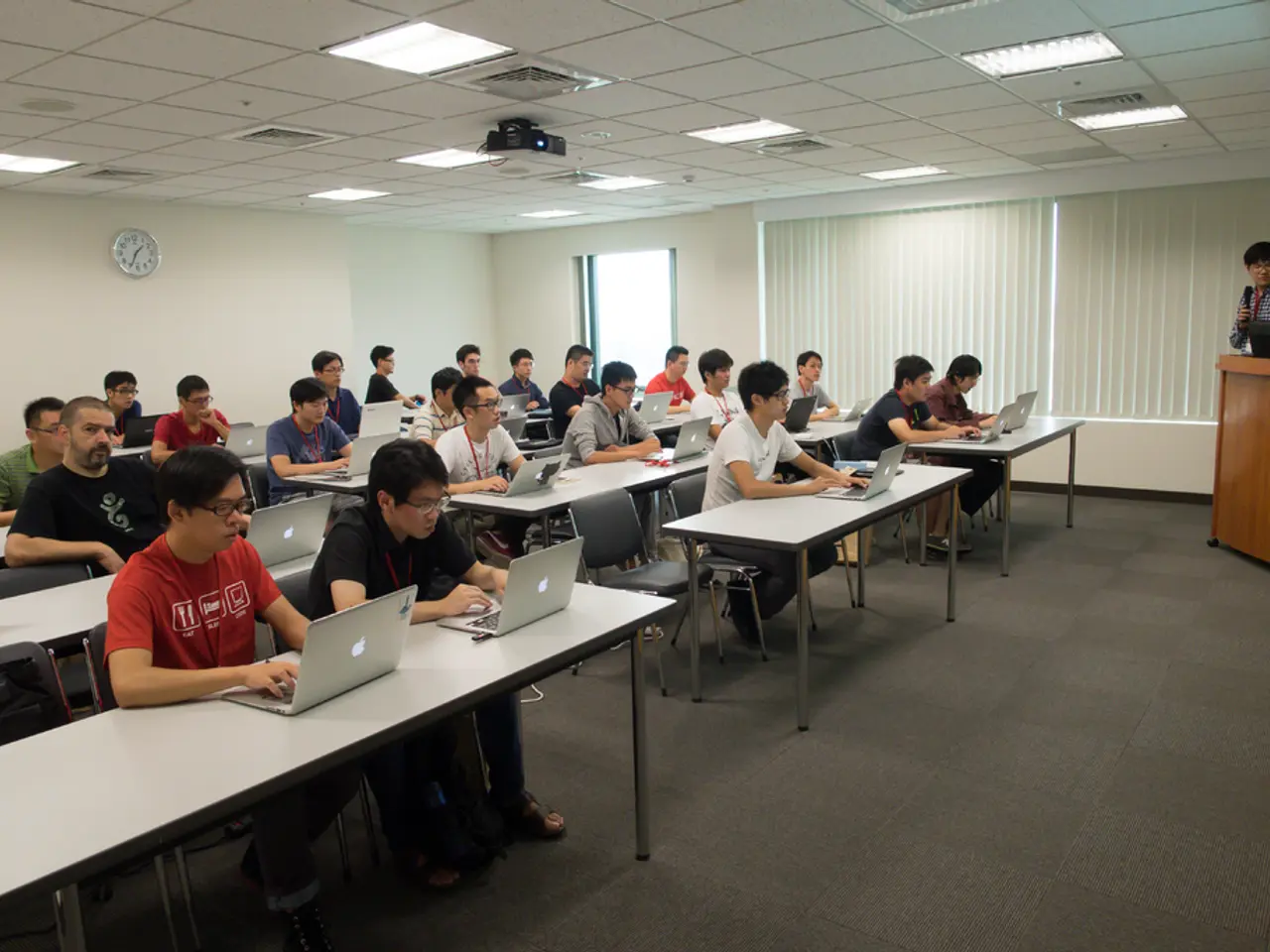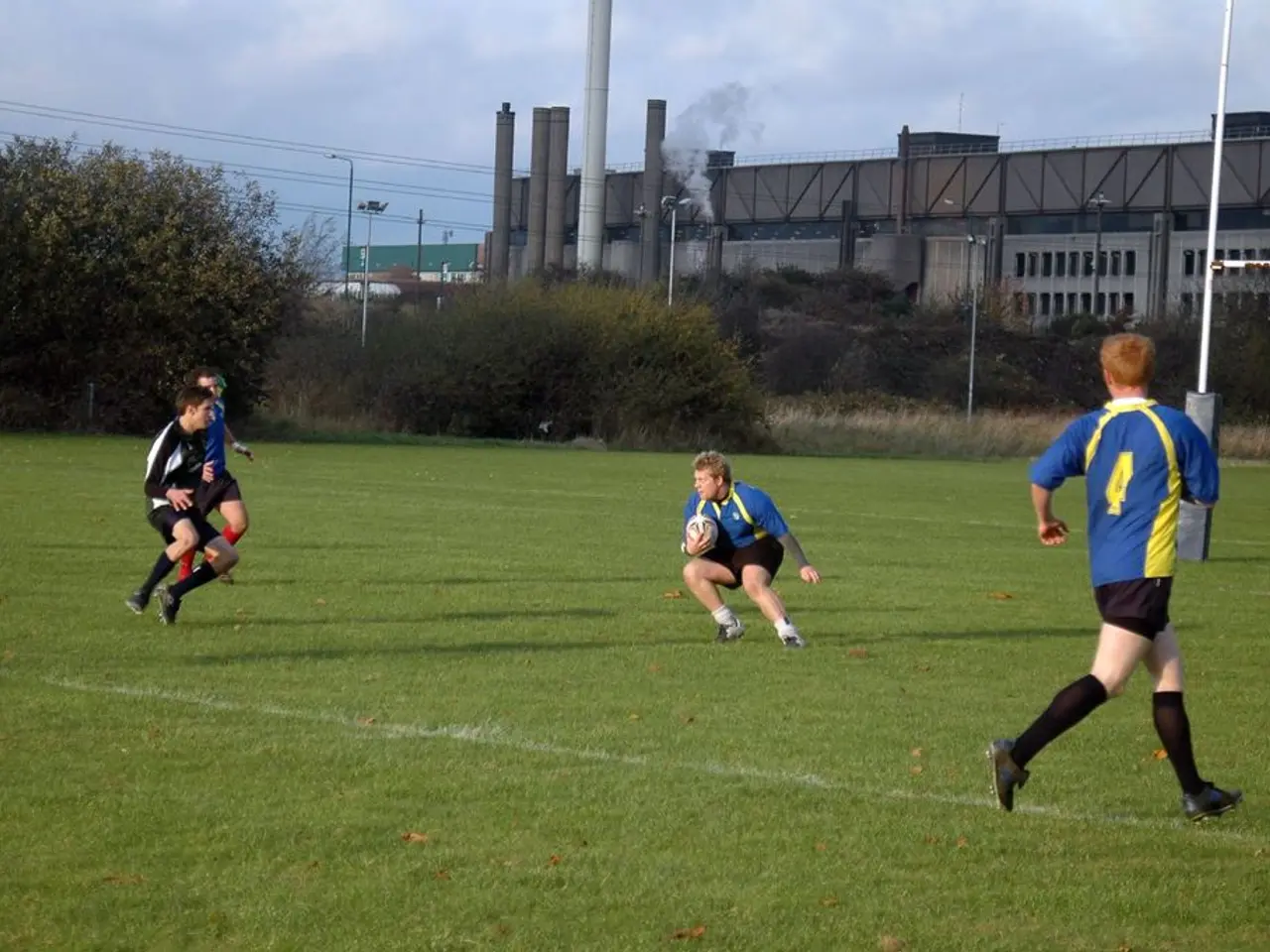Contested Cross Display in Brandenburg School Setting
Rising Right-wing Extremism in Brandenburg Schools: A Reflection of Broader Social Trends
A growing concern in Brandenburg, eastern Germany, is the increase of right-wing extremist incidents in schools. This trend mirrors the rise of authoritarian, xenophobic, and anti-Semitic sentiments in the region, as far-right parties such as the AfD gain support.
Causes of the Rise
The surge in far-right extremism can be attributed to various factors. Historically, eastern Germany has struggled to fully confront its Nazi past and the legacy of Soviet dictatorship, leaving many susceptible to extremist ideologies. Additionally, the normalization of xenophobic, anti-democratic, and autocratic opinions in society, often legitimized by far-right political successes and societal polarization, contributes to the problem. Broader societal issues such as economic insecurity, identity crises, and political disenchantment among youth make extremist narratives more appealing.
Measures to Combat Extremism
To address this issue, authorities and civil society in Brandenburg and similar eastern states are implementing several measures. These include increased educational efforts about the dangers of right-wing extremism, promoting inclusion and democratic values within schools, supporting victims of right-wing hostility, and monitoring and intervening in suspected extremist activities among youth. Non-governmental initiatives also provide youth with constructive alternatives to extremist engagement, such as cultural and social projects.
Current Status
Despite these efforts, far-right extremism remains a significant challenge in Brandenburg schools, reflecting the political climate where far-right parties have won a substantial share of votes in recent elections. Authorities and civil society continue to work on prevention and response strategies, but the persistence of extremist attitudes suggests ongoing risks.
The state has announced plans to deploy more school social workers in the Spremberg region to address the issue of right-wing extremism. In Spremberg, Mayor Christine Herntier (independent) has warned against the growing influence of right-wing extremism. Teachers and students from secondary schools in Spremberg have also expressed concerns about openly right-wing extremist behavior among their peers.
Recent Developments
In response to these concerns, the Brandenburg ministry has introduced a ban on unconstitutional activities into the school law, requiring schools to immediately report incidents glorifying Nazism, as well as anti-Semitic or racist incidents, to the school authority. Last year, a teacher at a school in Burg in the Spreewald reported right-wing extremism, sexism, and homophobia in an anonymous letter.
The number of right-wing extremist incidents in Brandenburg schools decreased by one-third between January 1 and May 31, 2025, compared to the same period last year, with a total of 195 incidents. The number of xenophobic incidents decreased by 8%, with a total of 57 incidents during the same period. However, the number of crimes with religious ideology increased from four to six, while those with foreign ideology decreased from seven to three.
Despite the decrease in incidents, two teachers who reported right-wing extremism at the school in Burg later left the school after facing harassment from right-wing extremists. This underscores the need for continued support and protection for those who speak out against extremism in schools.
The rise of right-wing extremism in Brandenburg schools is a complex issue with deep historical, political, and social roots. While efforts to combat these incidents are underway, ongoing vigilance and effective strategies are necessary to ensure a safe and inclusive learning environment for all students.
*The increase in right-wing extremist incidents in Brandenburg schools reflects a broader concern, as education-and-self-development spaces also become a venue for politics, with the rise of parties such as the AfD.
The decreasing number of right-wing extremist incidents in Brandenburg schools does not necessarily signify a decline in extremist attitudes, but rather a potential shift in the manner of expression or reporting, moving towards general-news channels and crime-and-justice areas, due to increased monitoring and intervention measures.*




